- Home
- Jude Hardin
THE JACK REACHER FILES: HOSTAGE Page 2
THE JACK REACHER FILES: HOSTAGE Read online
Page 2
A couple of years ago, the mayor had increased the budget for the police department, but other than the watch commander, there were still only eight full-time officers, four working days and four working nights. The twelve-hour shifts could be grueling sometimes, but as long as nobody was out sick or on vacation, the current staffing provided coverage around the clock, and everyone was able to take two consecutive days off every week.
There was usually one officer out on patrol, and one working the desk at the station. Today, the officer out on patrol—the one who’d relieved Vaughan at seven—was a man named Retro, and the officer on the desk was a woman named Ashton.
Technically, Vaughan was off duty, but she wasn’t going to bother calling Retro over to the diner on such a minor bust. She would take care of it herself. The commander had pre-authorized ten hours of overtime per week for every officer for such occasions, so no problem with that. And of course the extra money would come in handy.
Vaughan climbed into the driver’s seat, keyed the microphone on her radio and said, “Unit One to base.”
Ashton answered right away. “Go ahead Unit One.”
“Ten seventeen from Second Street with a ten ninety-five. PI and destruction of property. Caucasian male, no identification. Brown eyes, brown hair, approximately thirty-five years old. Cooperative, probably homeless.”
“Clear to transport, Unit One.”
“Ten four. Unit One over and out.”
Vaughan slid the microphone back into its clip. So much for having a nice breakfast and getting to bed by nine, she thought.
3
Hope was a small town, and the police station was only a few minutes from the diner.
Which meant Sozinho needed to work fast.
He waited until Officer Vaughan started the engine and pulled out onto Second Street, and then he opened his mouth and lifted his tongue and let the key fall to his lap. He raised his buttocks off the seat just enough for the shiny little notched cylinder to slide back to his fingertips, and then he pinched it between his thumb and forefinger and discreetly worked it around until he found the hole in the left handcuff.
He twisted the key clockwise, and the cuff popped open.
Which was quite a relief, since there had been at least a five percent chance that it wouldn’t.
Sozinho waited until Vaughan turned onto Old Slaughterhouse Road, a decaying thoroughfare with very little traffic, ready to make his move as they approached the abandoned meat processing plant. This was the most direct route from the diner to the police station, according to the man in the black leather jacket. Things might have been a bit more challenging if Vaughan had taken the long way around, but she didn’t. She hardly ever took the long way, the man in the black leather jacket had said, even though it was a much smoother ride. She liked the bumpy old short cut, which worked out beautifully for Sozinho.
“I’m sick,” he shouted. “I think I’m going to throw up.”
“We’ll be there in a minute.”
“I’m not kidding. You want to spend the rest of the day cleaning vomit off the back seat?”
Vaughan eased over to the curb. She flipped the switch to activate the blue strobes on her light bar, climbed out and opened the back door.
“Hurry up,” she said.
Pretending that his wrists were still cuffed behind his back, Sozinho scooted to the edge of the seat and started dry heaving over the gutter, retching convincingly while Vaughan stood there with her hands on her hips looking down on him.
“We’re going to offer you treatment for your drinking problem,” she said. “Maybe you can turn your life around.”
A vehicle backfired a couple of blocks away. Probably a truck making a delivery over on First Street, where most of the town’s businesses were located.
It was the diversion Sozinho had been waiting for.
When Vaughan shifted her eyes in the direction of the disturbance, Sozinho clocked her in the jaw with a right uppercut. Her knees buckled and she collapsed forward into Sozinho’s arms. She reached for her pistol, but she was groggy and slow and Sozinho beat her to it. He tossed the gun on the floorboard where it was out of reach, and then he kicked off his left shoe and reached down and peeled off his sock, which had been soaked in chloroform.
He held the sock over Vaughan’s face until her muscles went slack, and then he cuffed her wrists and folded her into the back seat. All this in less than thirty seconds.
It was almost eight o’clock, and almost everyone in Hope was where they needed to be for the morning.
And hardly anyone ever used Old Slaughterhouse Road anyway.
No pedestrians, no cars driving by. Nobody had seen anything.
Sozinho went through Vaughan’s pockets and the compartments on her gun belt. He took her cell phone and a canister of pepper spray and an ID case and thirty-two dollars in cash. Knowing that the phone’s location could be tracked, he tossed it to the pavement and stomped on it, and then he grabbed the pistol from the floorboard and walked around and climbed into the driver’s seat. He switched the light bar off and put the car in gear and made a U-turn at the first intersection.
4
Retro got the call from Ashton at 8:07.
She called him on his cell phone instead of the police radio.
“I didn’t want this to go out over the airwaves yet,” she said.
Nervously.
Informally.
More like a friend-to-friend exchange instead of official police business, as if she suspected that something was very wrong but wasn’t quite ready to admit it yet.
“What’s going on?” Retro said.
“I need you to swing by the diner. Vaughan called and said she was on her way to the station with a subject in custody. That was twenty minutes ago, and she hasn’t shown up yet.”
“Why didn’t she call for backup?”
“It was nothing. Public intoxication and destruction of property. She said the guy was cooperative. What really worries me is that she’s not responding to my calls. I’ve tried the radio and her cell phone.”
“Did you get a description on the perp?”
“Yes. Caucasian with brown eyes and brown hair, approximately thirty-five years old. No ID.”
“I’m on my way over there,” Retro said. “She probably walked back inside and bought the guy a hamburger or something. You know how she is.”
“But why isn’t she answering her phone?”
“Maybe the battery went dead.”
“Okay. Give me a call when you know something.”
“I will.”
Retro switched on his light bar and headed over to Second Street, going a little faster than the posted speed limit and pulsing his siren through the red lights, trying to reach Vaughan on the radio every thirty seconds or so.
No answer.
He turned the corner and parked on the street, climbed out and saw the writing on the sidewalk and the blotches on the fire hydrant and the can of spray paint that had rolled into the gutter. He would need to call in a clean-up crew to deal with the mess, but first he wanted to find out what happened to Vaughan.
He walked around the block, didn’t see her car anywhere.
He entered the diner, which was still busy with the breakfast crowd. There was a waitress wiping down one of the tables in front, a young lady Retro didn’t recognize. He motioned for her to come up to the counter.
“Have a seat,” she said from across the room, gesturing toward the booth reserved for the Hope Police Department.
“I need to talk to you,” Retro said.
She left her bottle of spray cleaner and her roll of paper towels on the table and hurried to the front of the restaurant.
“What can I do for you, sir?” she said.
“Was there a female officer here about an hour ago?”
“Yes, sir. I served her. She ordered eggs and bacon and hash browns and toast, but then she walked outside and arrested some guy before she had a chance to eat much of
it.”
“She never came back inside?”
“No, sir. I saw everything through the window over there behind the drink station. Guy was staggering around with a can of spray paint over by the fire hydrant. Looked really drunk. The officer was trying to talk to him at first, and then she patted him down and handcuffed him and led him away, toward the parking lot. She never came back into the restaurant. In fact, I still have her guest receipt. She never paid me.”
Retro pulled a ten dollar bill out of his pocket.
“Will this cover it?” he said.
“Yes, sir. I’ll be right back with your change.”
“That’s okay. Keep it.”
“Thank you, sir. I hope everything’s all right.”
Retro nodded. He walked outside, looked up and down Second Street, wondered what could have happened. He pulled out his cell phone and called the station.
Ashton answered right away.
“Did you find her?” she said.
“No. Go ahead and put out an APB. I want to get the state police in on this as soon as possible. And I’m sure Commander Bailey will want to schedule a press conference right away and set up a tip line. Maybe offer a reward. I’m going to tape off the area where Vaughan arrested the guy, and I’ll bag the can of spray paint he was using. Maybe we can get some prints off of it. After that I’m going to check the possible routes Vaughan might have taken from the diner to the station, and then I’ll check her house. I’m trying to stay optimistic, but I’m pretty concerned at this point.”
“Me too,” Ashton said.
Retro walked back to his cruiser, opened the trunk and grabbed a pair of nitrile gloves and a zippered plastic evidence bag and a roll of yellow crime scene tape. No telling how long it might take for the state police to show up with a forensics team, he thought. Best to secure the area and get everything started.
He picked up the can of spray paint first, dropped it into the bag, placed the bag in the back seat of his car.
As he taped off the sidewalk, a few of the shop owners walked outside and expressed their concern, wondering what had happened and worrying about how it might affect their business. Without going into any details, Retro told them that it was potentially a very serious situation, one that might require a great deal of patience from them. They walked back to their stores, grumbling about how difficult it was to make a living these days.
When Retro finished what he was doing, he climbed into his cruiser and drove toward the station, veering onto the route that Vaughan liked to take from this part of town, the shortcut down Old Slaughterhouse Road. Most of the other officers—and most of the other citizens of Hope—preferred to use First Street when traveling east and west through the business district, even though it was a little bit further in distance, and even though there were several intersections with traffic lights to deal with.
First Street was properly maintained by the county, new and smooth and well-lit at night, whereas Old Slaughterhouse Road was bumpy and crumbling and eerily quiet and dark. It was desolate and creepy and some of the older people in town said you could still smell the blood sometimes when the wind blew the right way.
Vaughan insisted that the gasoline she saved paid for the department’s Fourth of July picnic every year. She claimed that she knew the old thoroughfare well enough to dodge all the potholes blindfolded, but her police car always looked like it needed to be washed and it was frequently in the shop for one thing or another. Retro didn’t mind using the shortcut occasionally, but he avoided it for the most part. First Street was just so much more pleasant, and the job was hard enough without having to rattle down three miles of grit and grime multiple times every day. Not that he would have to worry about it much longer. After twenty years of service as a police officer, his retirement had been approved, and he would soon be moving to Florida and leaving Hope behind. He was forty-two years old and single, and he would be getting a nice paycheck for the rest of his life. No more cold winters, no more twelve-hour shifts. He looked forward to fishing and playing tennis and watching the ocean from a hammock with a tall drink in his hand.
He drove slowly. As he approached the meat processing plant, he saw something off to the shoulder, a bright white rag or something, stark and incongruous against the sandy black dirt.
He stopped and got out to take a closer look.
It wasn’t a rag.
It was a sock.
5
Vaughan opened her eyes, tried to get up but couldn’t. She was lying flat on a carpeted floor, wrists cuffed and ankles wrapped with duct tape.
A few feet to her right, the man she’d arrested was sitting in a tattered desk chair next to a cheap wooden table, his legs propped up on a large ice chest. There was a steel lamp on the table, no shade and no bulb, along with a semi-automatic pistol—probably the one that had been in Vaughan’s holster. To the right of the table there was a solid wooden door and a rectangular window. The curtains had been parted a few inches to let some light into the room.
The man had a cell phone to his ear.
“I have her,” he said. “You can deactivate the circuit now.”
Vaughan had no idea what the man was talking about. He sat there and listened for a few seconds, and then he clicked off and set the phone on the table. It rang a few seconds later. He looked at the caller ID, but he didn’t answer.
“Where are we?” Vaughan said.
“You’re awake. Good. I was afraid I might have overmedicated you.”
“Where are we?” Vaughan said again.
“It’s not important for you to know that.”
“Are we still in Colorado?”
“It’s not important for you to know that, either, but yes, we’re still in Colorado. Far from any sort of populated area, so don’t bother trying to shout or scream. Nobody will hear you. And if you annoy me enough, I’ll make it so you can’t talk at all.”
Vaughan looked around. She knew that they were in a motel room somewhere, but she had no idea how long she’d been unconscious or how far she’d been taken from home.
“Who are you?” she said. “What do you want?”
“My name is Caminha Sozinho. It’s not my real name, of course, but it’s what people in certain professional circles know me by. I made it up. In Portuguese, it means walks alone. Pretty cool, don’t you think? As for what I want, well, right now that’s somewhat basic. I just want to survive.”
Sozinho told Vaughan about the man in the black leather jacket. He told her about the electronic circuit implanted in his neck, and he told her about the contract out on Jack Reacher.
“He won’t come,” Vaughan said. “Reacher’s too smart for that. He’s going to know it’s a trap.”
“I don’t know a lot about the man,” Sozinho said. “But from what I understand, he’s intensely loyal to people he considers to be his friends. From what I understand, he will come, trap or no trap. The man in the black leather jacket thinks he will probably want to hear your voice over the phone, to make sure you’re still alive. Once that has been established, he will analyze the situation, consider all the angles, and then he will come, confident in his abilities to defeat the opposition—which at the moment happens to be me.”
“He’s confident in his abilities for a reason,” Vaughan said. “He won’t have any problem dispensing with you.”
“We’ll see about that, won’t we?”
“Anyway, how is he going to hear my voice? Are you going to give the police your cell phone number or something?”
“Or something.”
“You’re assuming that he’s going to take an interest in this. I doubt if he will. I haven’t heard from him in a long time.”
“A police officer being abducted is going to be big news. I imagine all the major networks have crews en route as we speak. When Reacher hears that his good old friend Officer Vaughan has been taken—and especially when he hears it directly from you over the phone—it’ll be on. He’s going to get here as fast a
s he can. At least that’s what the man who hired me is betting on. It might take a couple of days for Reacher to get here, but we’ll be okay. The man in the black leather jacket arranged for this nice big cooler full of food and water to be placed here for us, along with some clean clothes and this cell phone and some other supplies and a portable toilet. We have everything we need, and if we need something else, it will be brought to us. We can wait Reacher out for as long as it takes. The authorities will never find us here.”
“What makes you think Reacher will find us here?”
“He won’t have to,” Sozinho said. “Once I get word that he’s in the area, I’ll find him.”
Vaughan wondered what Sozinho had done with her police car. He must have hidden it someplace where it wouldn’t be spotted from the ground or the air. The only other way for anyone to track her would be through her cell phone, and she was certain that Sozinho had destroyed it before leaving Hope. Or maybe he had tossed it into the back of a pickup truck or something, maybe one with out-of-state plates, enjoying the thought of the FBI wasting time chasing it.
At any rate, Sozinho was right. It wasn’t likely that anyone was going to find her, wherever she was. There were thousands of square miles of nothingness in Colorado, and there were thousands of places a kidnapper could have hidden her.
Or buried her.
“Let’s say Reacher comes,” Vaughan said. “And let’s say you’re successful in taking him down. Where do I fit in to all this? What’s going to happen to me?”
Sozinho opened the cooler and pulled out a bottle of water.
“Thirsty?” he said.
“No. I want you to answer my question.”
“Don’t worry. You’re just bait. Once I’m done with you, I’ll let you go.”
Vaughan didn’t believe that for a second. She’d seen Sozinho’s face, not only here in the shadows but in the bright morning sunshine back in Hope. She could easily identify him. There was no way that he was going to let her go. He was just telling her that to keep her calm during the wait.

 Ricochet: The Jack Reacher Experiment Book 8
Ricochet: The Jack Reacher Experiment Book 8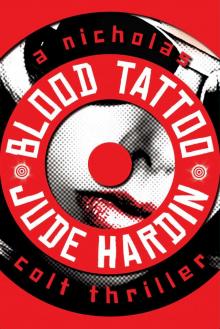 Blood Tattoo (A Nicholas Colt Thriller Book 5)
Blood Tattoo (A Nicholas Colt Thriller Book 5) Racked (A Lt. Jack Daniels / Nicholas Colt mystery)
Racked (A Lt. Jack Daniels / Nicholas Colt mystery)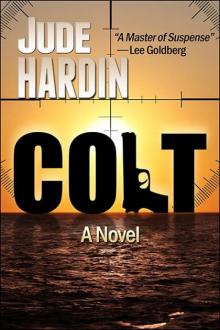 COLT (A Nicholas Colt Thriller)
COLT (A Nicholas Colt Thriller)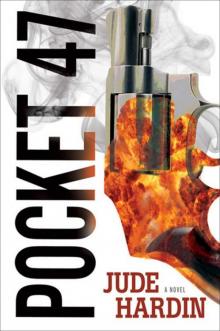 Pocket-47 (A Nicholas Colt Thriller)
Pocket-47 (A Nicholas Colt Thriller)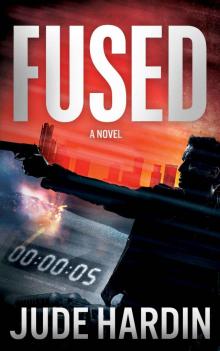 FUSED: iSEAL OMNIBUS EDITION (A Military Technothriller)
FUSED: iSEAL OMNIBUS EDITION (A Military Technothriller) THE JACK REACHER FILES: CHOKE 2 (Episode 2 in the CHOKE Series)
THE JACK REACHER FILES: CHOKE 2 (Episode 2 in the CHOKE Series)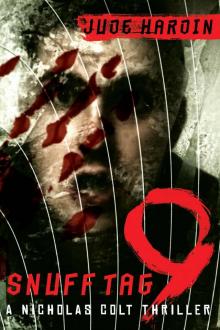 Snuff Tag 9 (A Nicholas Colt Thriller Book 3)
Snuff Tag 9 (A Nicholas Colt Thriller Book 3) THE JACK REACHER FILES: HOSTAGE
THE JACK REACHER FILES: HOSTAGE THE JACK REACHER FILES: THE GIRL FROM THE WRONG SIDE OF CORDIAL (with Bonus Thriller THE BLOOD NOTEBOOKS)
THE JACK REACHER FILES: THE GIRL FROM THE WRONG SIDE OF CORDIAL (with Bonus Thriller THE BLOOD NOTEBOOKS) 3 TERRIFYING THRILLERS
3 TERRIFYING THRILLERS The Jack Reacher Files: Fugitive
The Jack Reacher Files: Fugitive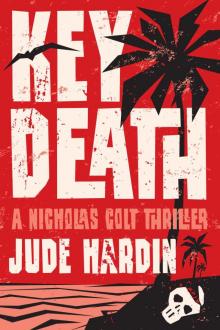 Key Death (A Nicholas Colt Thriller Book 4)
Key Death (A Nicholas Colt Thriller Book 4) SYCAMORE BLUFF (Prequel to THE JACK REACHER FILES: ANNEX 1) (A Nicholas Colt Thriller Book 8)
SYCAMORE BLUFF (Prequel to THE JACK REACHER FILES: ANNEX 1) (A Nicholas Colt Thriller Book 8)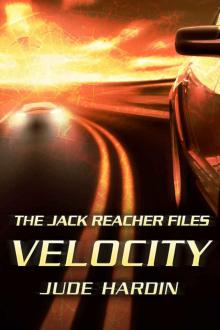 VELOCITY
VELOCITY Fire and Ice
Fire and Ice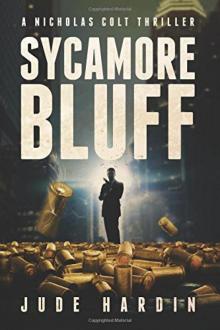 Sycamore Bluff
Sycamore Bluff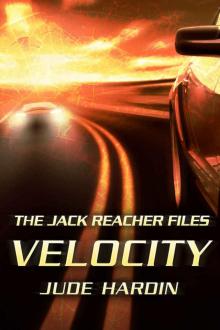 Jack Reacher Files_Velocity
Jack Reacher Files_Velocity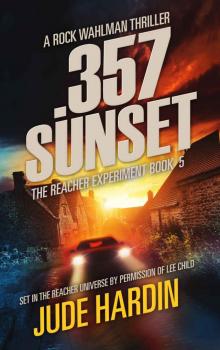 357 Sunset
357 Sunset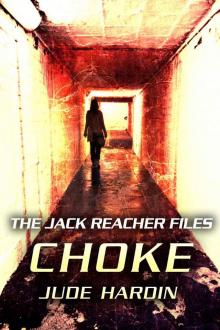 THE JACK REACHER FILES: CHOKE (Episode 1 in the CHOKE Series)
THE JACK REACHER FILES: CHOKE (Episode 1 in the CHOKE Series)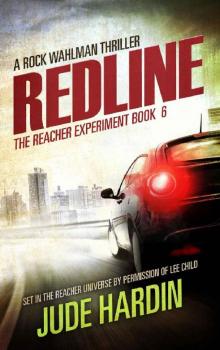 Redline: The Reacher Experiment Book 6 (The Jack Reacher Experiment)
Redline: The Reacher Experiment Book 6 (The Jack Reacher Experiment) Fugitive
Fugitive Fire and ice dm-8
Fire and ice dm-8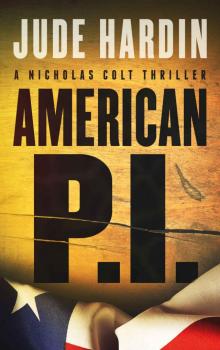 American PI
American PI THE JACK REACHER FILES: ANNEX 1 (A Novel of Suspense)
THE JACK REACHER FILES: ANNEX 1 (A Novel of Suspense)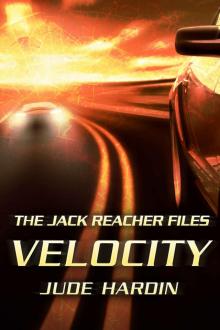 THE JACK REACHER FILES: VELOCITY (with bonus thriller CROSSCUT)
THE JACK REACHER FILES: VELOCITY (with bonus thriller CROSSCUT) The Reacher Experiment
The Reacher Experiment Hostage
Hostage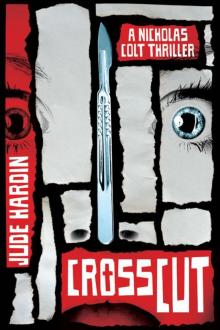 Crosscut (A Nicholas Colt Thriller Book 2)
Crosscut (A Nicholas Colt Thriller Book 2) Lady 52: A Jack Daniels/Nicholas Colt Novel
Lady 52: A Jack Daniels/Nicholas Colt Novel